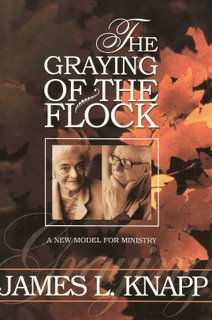Scot McKnight of
The Jesus Creed fame brings us another treat with
Praying With The Church. In this highly accessible book, McKnight draws the reader into the world of prayers from the Catholic, Orthodox, and Protestant traditions in such a way that makes entering into foreign ecclesial turf a comfortable experience. In a sense, he gives us permission to wander outside of our zone of prayer comfort without the seeming requirement of weirdness.
McKnight, a master teacher, provides early on a metaphor which makes understanding the differences between praying in the church and praying with the church. It is a metaphor that reappears in just about every chapter at just the right times. After using this metaphor to set the stage, he goes on to make a convincing case that Jesus prayed many of his prayers at regular times, mostly from the Psalms, the prayer book of his day, and that we should do the same.
The gift of this book is threefold:
1.
Dismantles (gently) most objections to praying prayers other people have written. For people who have grown up praying spontaneously in public and private, there are usually reasons why they don’t pray their prayers from books or any pre-written prayers. Whether it is skepticism about the sincerity of praying someone else’s prayer or discomfort in reading a prayer or fear of being "too Catholic," McKnight enters into those objections gently, but fearlessly. Another objection people have to pre-written prayers is their concern that it is meaningless repetition. Not only does he make a great case for these prayers not being meaningless repetition, he makes a case that our spontaneous prayers become the very same thing. In this part of the book I felt like he had been spying on me. It is not the repeating that becomes meaningless, but rather what we invest into the pray that make it meaningless. Another fear people have is that they might feel they have to give up their current way of praying in order to pray with the church. Not so. McKnight anticipates all of these potential objections and loosens up the reader to consider trying a new way of praying.
2.
Introduces prayer resources from Catholic, Orthodox and Protestant traditions – and Phyllis Tickle. By the time the reader gets through this book, he or she will know right where to go next in order to enter into praying with the church on a regular basis. Although McKnight does not go into deep detail about any of the prayerbooks from these traditions, he gives enough to get a feel for what direction one might want to take as a first step.
3.
Provides clear and simple tips for getting started. The final chapter outlines nine needs we have in praying with the church. These nine needs free the reader to begin praying with the church without fear of failure or like they are giving up the good things they have going on already in their prayer world.
Finally, Praying With The Church honors Christianity in its various expressions without blurring lines between denominations. There is a very generous tone in the book toward all forms of Christian practice, privileging each of them for their meaningful contributions to the Christian discipline of prayer.

